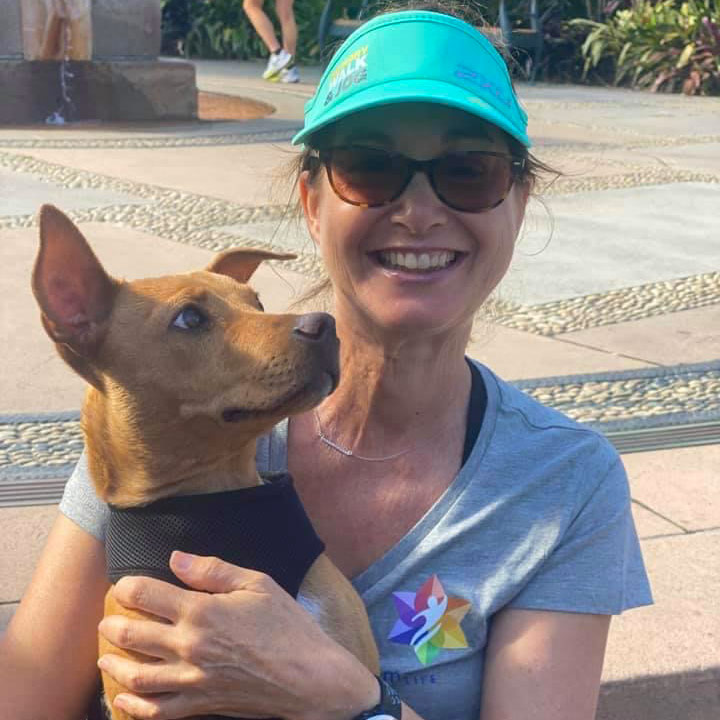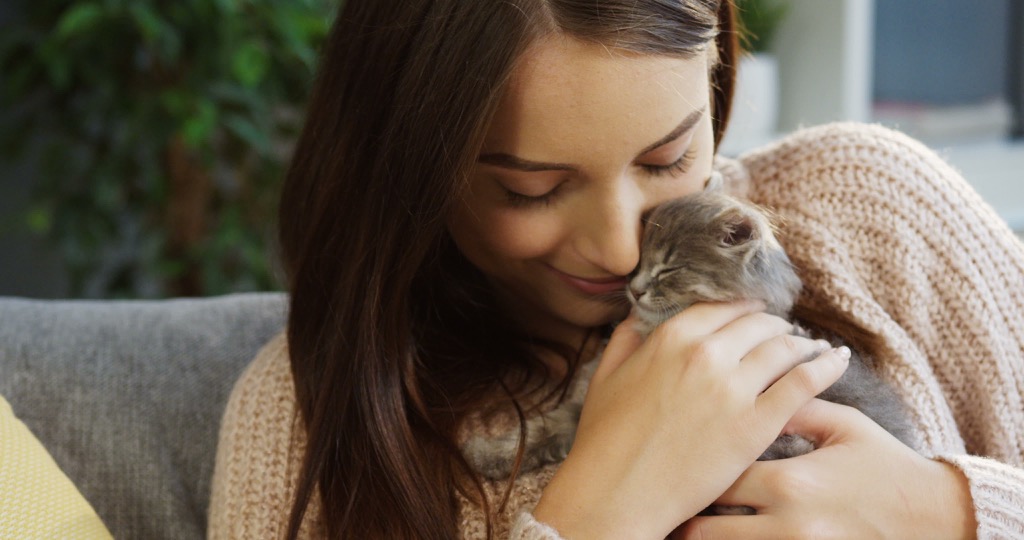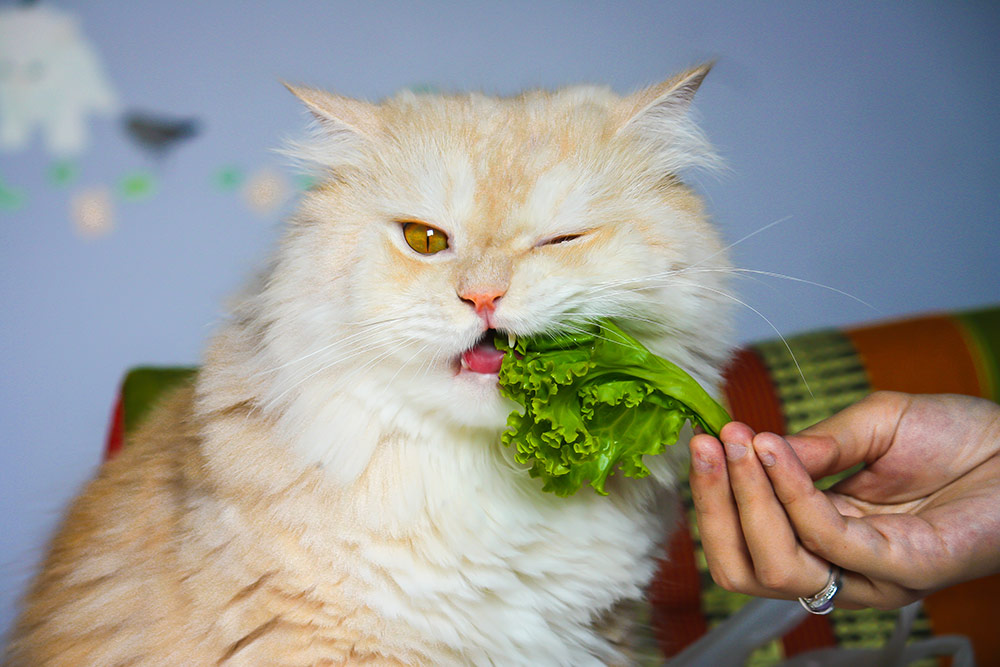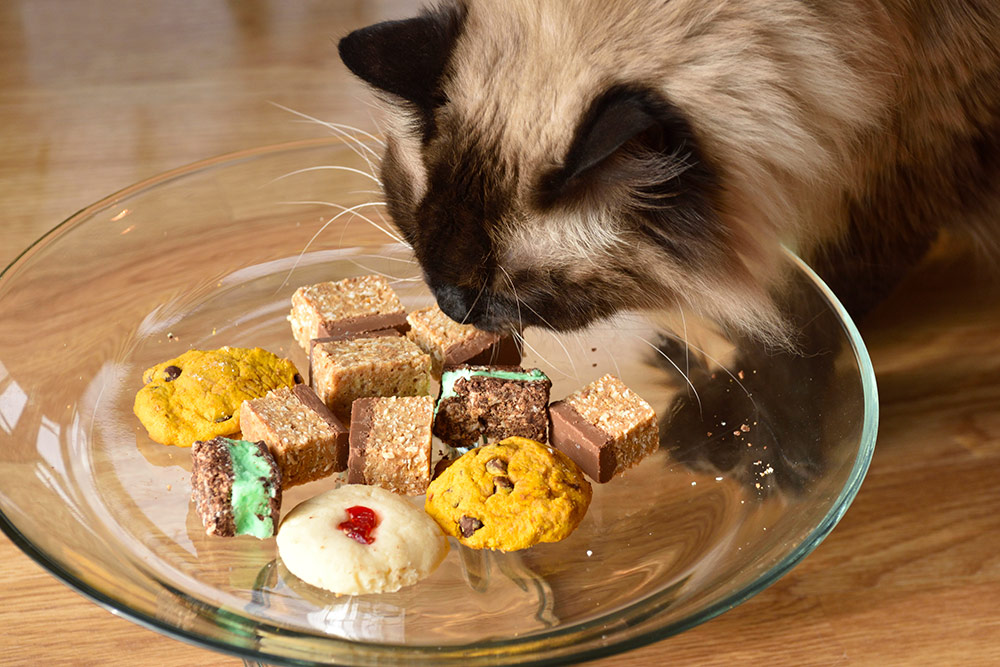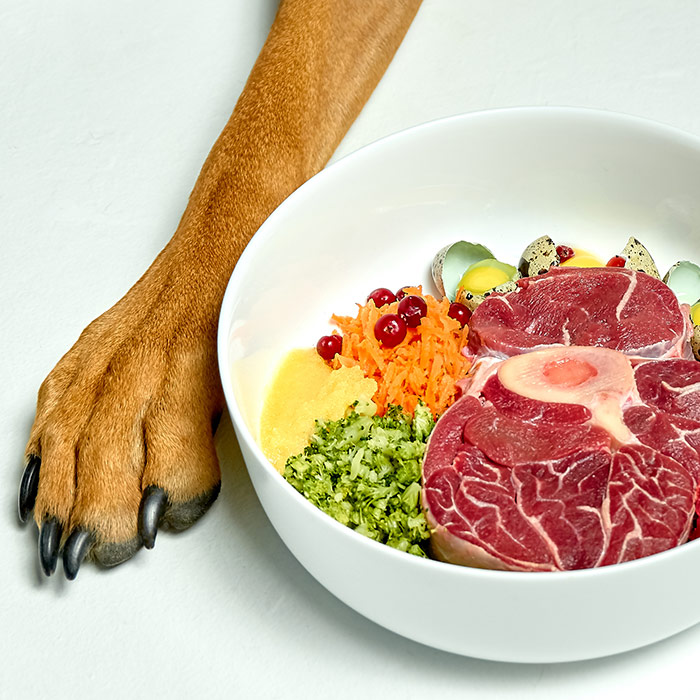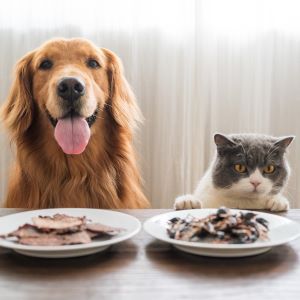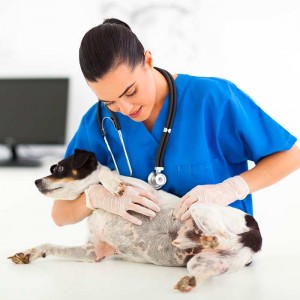Emergency cat food: The human foods cats can eat
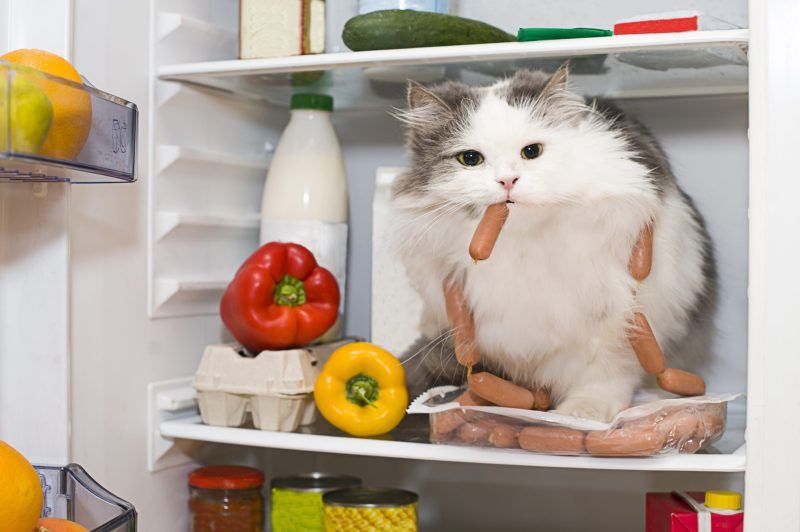
Summary
Ran out of cat food? Some human foods can be safe short-term options. Plain cooked meats, fish, eggs and unsweetened yoghurt can work, while chocolate, onion, garlic, grapes, raisins and xylitol are toxic. Offer small portions, avoid seasoning and watch for reactions. These are temporary fixes only; speak to your vet for special diets and return to a complete cat food as soon as possible.
“Help! I ran out of cat food what can I use?”
While our pets can provide a great source of comfort and stress relief, they can also cause us additional worry, particularly when it comes to their care and well-being.
Pet food may be high on the list of potential causes of concern for many cat owners, particularly if they are running low of supplies or have run out altogether. This situation often leaves cat owners questioning what human foods cats can eat, and what they could use for emergency cat food.
If your cat is on a special diet or is particularly fussy, and her preferred brand is currently unavailable, you may be wondering what cat food alternatives you can try.
So, what exactly are your options if you don’t have any of Felix’s or Fifi’s usual food available?
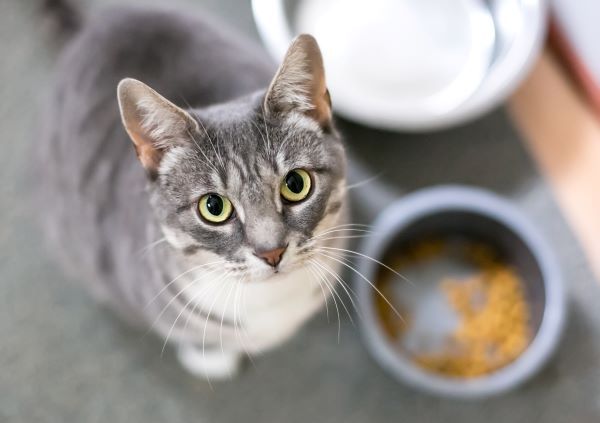
Ordering from an online supplier
Ordering cat food online is becoming an increasingly popular option; however, there is no guarantee that, if you have left it a bit late, your order will arrive before you run out of supplies.
A good option to ensure that you don’t run out in the future, though, is to set up an “auto-delivery”. Just make sure that you calculate the frequency of delivery correctly, so that you aren’t caught out again! Allow for one week less than you anticipate between deliveries, to accommodate any unforeseen delays.
Switching brands of cat food
The basis of your cat’s diet should be a high quality, balanced, premium commercial cat food that is appropriate for their life stage and health status. International Cat Care generally recommends feeding healthy cats a variety of both wet and dry food so that cats can enjoy the benefits of both food types – wet food helps to ensure adequate water intake and dry food is good for oral health – and so they do not become accustomed to only one type of food. Additionally, feeding a mixed diet may reduce the risk of developing obesity, compared to feeding a dry only diet, according to research.
 If you decide to switch brands, the most important advice we can give is to plan ahead and not wait until you’re already out of your cat’s regular food. Make the switch gradually, substituting a small portion of the new food for the old food each day. If you are looking at the range of cat food alternatives available, one of the most important things to look out for when choosing a food to feed your cat is that it is a ‘complete’ food – this will be stated on the packaging – meaning that it has been developed to meet all of your cat’s nutritional needs.
If you decide to switch brands, the most important advice we can give is to plan ahead and not wait until you’re already out of your cat’s regular food. Make the switch gradually, substituting a small portion of the new food for the old food each day. If you are looking at the range of cat food alternatives available, one of the most important things to look out for when choosing a food to feed your cat is that it is a ‘complete’ food – this will be stated on the packaging – meaning that it has been developed to meet all of your cat’s nutritional needs.
Expert advice from Dr Felicia:
Opting for the same type of protein base, whether chicken, fish or otherwise can help improve acceptance for cats who tend to be fussy. Wet food in sachets with gravy/sauces tend to have better acceptance for most cats.
If you are unsure if a potential new brand is suitable for your cat’s needs, buy only a small quantity as emergency cat food and be sure to check with your vet before stocking up with large quantities – and also with Fifi to make sure she is happy to eat it!
Puppy and dog food are not suitable as kitten food or cat food substitutes as they are deficient in taurine, an essential amino acid that cats require from their food. While dog food won’t make your cat sick, it is not designed for the strict nutritional needs of cats, so is not a suitable cat food alternative.
Substituting human foods
If you are completely out of cat food, or Felix is turning up his nose at the new and unfamiliar brand you just bought, don’t panic! There are probably several nutritious options in your fridge, freezer or pantry that you can safely give your cat as emergency cat food. Just be sure to check our guidelines below first, to know what human foods can cats eat, as some foods could make them seriously ill.
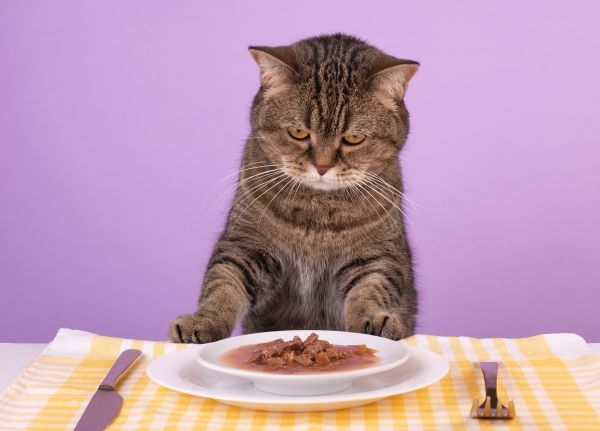
Always ask yourself the following 3 questions before raiding the fridge for Felix or Fifi:
- Does this food contain a lot of salt and/or fat, which could cause excessive thirst and tummy troubles?
- Does my cat have any special dietary needs or allergies that this food may affect?
- Is this food on the list of dangerous foods for cats? If you are unsure, check the Pet Poison Helpline or other online resource first.
Unsure how serious it is?
Bow Wow Meow policyholders can get access to trusted vet care anytime, anywhere, at no additional cost. Connect to an experienced Australian registered vet via video call, 24/7. Whether it’s providing vet advice, setting up at-home treatment plans, or confirming if you need to visit a vet in person, you can get help when you need it.
Find out more about our pet insurance cover options.
What human food can cats eat safely?
Domestic cats are true carnivores, meaning that they are primarily meat eaters and need animal protein to survive and thrive. This means that cats have some special dietary requirements that do not apply to many other animals, including humans and dogs, Basically, cats have a much higher protein requirement in their diet that can typically only be met by a meat-based diet, because they have come to rely on protein as an energy source.
In addition to requiring a much higher level of protein in their diet, cats also require specific amino acids to be present – these being taurine, arginine, methionine and cysteine. These amino acids are not found in plants, which means that finding suitable cat food alternatives (or kitten milk alternative) can be quite challenging, particularly for non-meat-eating households.
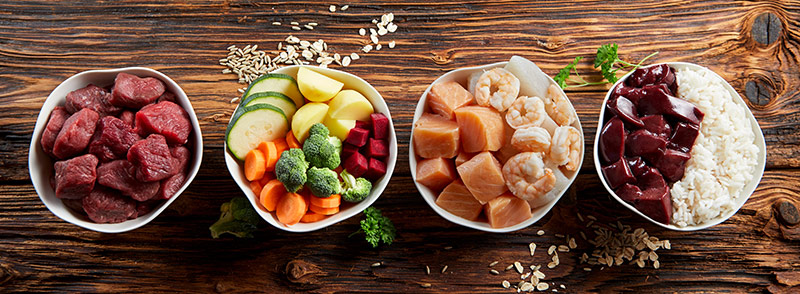
As obligate or true carnivores, cats also have a reduced ability to digest and utilise carbohydrates, because a carnivorous diet is typically low in carbohydrates. In contrast to many other animals, cats derive most of their blood sugar – and so their energy – from the breakdown of protein rather than carbohydrates. However, this does not mean that cats cannot use carbohydrates or that it should not be present at all in their diet, but as they have a more limited capacity to digest and utilise carbohydrates, cat food alternatives need to be chosen carefully.
Because of their unique and special dietary requirements, it is actually extremely difficult to provide a well-balanced diet for cats with home-prepared foods. But rest assured that while human food should only make up a small portion of your cat’s diet, many human foods are perfectly safe to feed as emergency cat food. Unless you’ve been given any special dietary instructions to the contrary by your vet, what you should aim for is a serve of mostly lean protein, although there are a few suitable options or additions from other food groups as well. If you’re a meat-eating home, then chances are you have some good choices on hand, whether fresh, frozen or tinned.
If Felix turns away from his bowl with a look of disdain, keep in mind that cats have an extremely well-developed sense of smell and the odour of food is particularly important to them. This is enhanced when food is slightly warmed, so cats prefer food that is around body temperature (around 35°C). Foods that have a high level of protein and fat, in general, are much more palatable for cats. While they can taste substances that are salty, sour or bitter, unlike humans and dogs they are not able to perceive sweet tastes. The texture of food is also important and in general cats prefer the texture of meat.
Can cats eat …?
Can cats eat meat?
The safest meat option for cats is lean and plainly cooked portions of beef, chicken, turkey, lamb and pork
Avoid:
- Processed meats and cooked manufactured meats, including bacon and sausages, as they can contain sulphite preservatives which can be detrimental to your cat’s health.
- The fatty parts of the meat, the skin, and cooked bones.
- Leftovers or recipes containing any items from the dangerous foods list (e.g. onions or garlic), any strange vegetables, heavy seasoning or wine.
- Liver – while small amounts are fine, too much can lead to vitamin A toxicity.
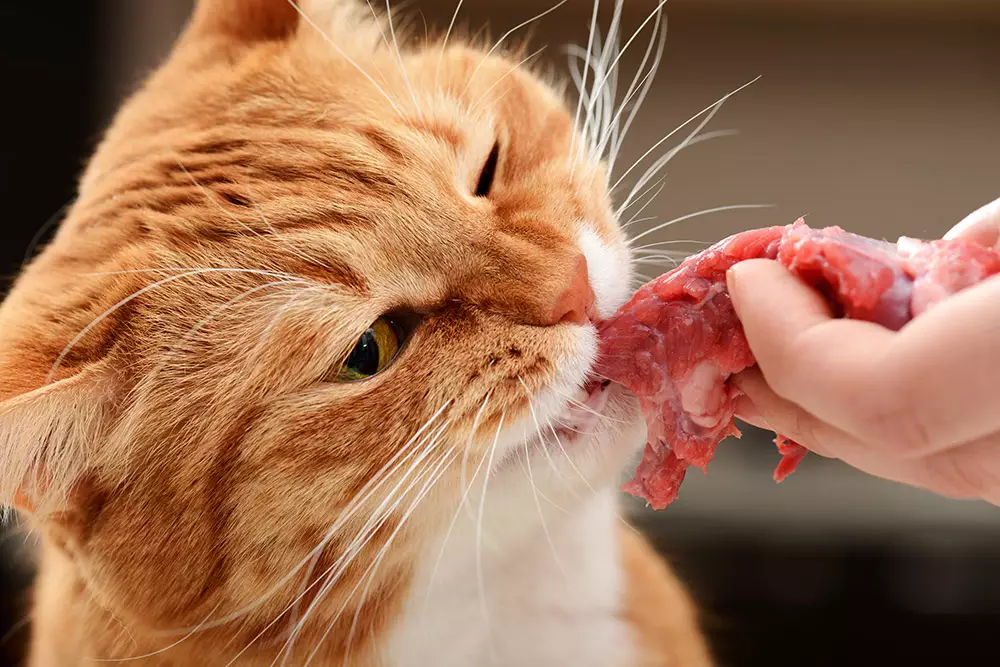
Can cats eat bones? (raw only, with caution)
Bones can be “a bone of contention” when it comes to cat food alternatives. In the wild, cats would eat a whole animal carcass – meat, organs and bones. A diet of only the muscle meat of an animal is highly deficient in minerals such as calcium and will not allow the bones to grow properly.
Be aware:
- Too many raw bones may lead to constipation. Generally, 1 to 2 raw bones may be offered per week with a few days in between each serving. Always supervise cats when they eat raw bones.
- Suitable raw meaty bones include raw chicken (necks, wings, or drumsticks) and raw lamb shanks. The bone must be large enough so that the cat cannot fit the whole bone into their mouth or swallow the bone whole.
- Avoid large marrow bones (these have very thick outer rims), large knuckle bones or bones sawn lengthwise as cats may crack their teeth on these.
- Never give your cat cooked bones as these can be choking hazards. They can splinter, causing stomach lacerations and obstructions within the digestive system.
Expert advice from Dr Felicia:
Most veterinarians and major veterinary organisations usually advise against the feeding of raw bones and meat due to food safety risks from bacterial contamination. While raw meat and bones may be well tolerated by some cats and some vets encourage their use for reducing dental disease and providing enrichment, owners need should be aware of the risks prior to feeding, which can involve upset tummies and or broken teeth when inappropriate bones are provided to chew.
Can cats eat fish? Is tuna okay for cats?
Contrary to common belief, tuna does not contain all the nutrients cats need. Cat food is truly the only source of nutrients that covers every base for your furry friend. If you feed your cat a diet consisting of only tuna, he or she will face severe health consequences sooner or later. However, in small portions, from time to time or as an emergency cat food option, tuna or other fish are fine.
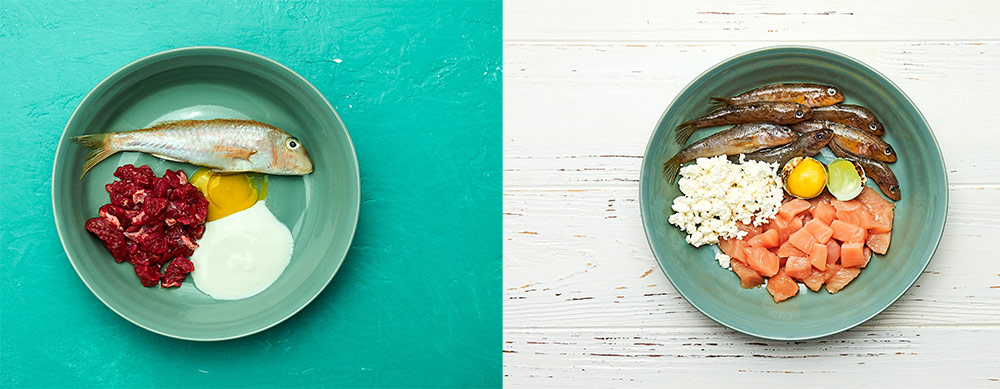
Be aware:
- Cooked fish fillets are a good source of omega 3 fatty acids, which are good for your cat’s heart, kidneys, joints and vision.
- Canned fish including salmon, tuna and sardines, packed in water and low in salt, rinsed and drained thoroughly, is another good option.
- Avoid feeding fish constantly as it is not a complete diet.
- Avoid sushi and raw fish.
What other proteins can cats eat?
Cheese:
Small amounts of hard, mild cheeses like Colby, gouda, Swiss or cheddar, cottage cheese.
Eggs:
A great protein but be sure to serve only cooked eggs. Raw egg whites are bad for cats.
Yogurt:
Natural, plain or Greek yogurt acts as a pro-biotic and provides a great source of protein. Provide in moderation. Avoid sweetened varieties, including those sweetened with ‘natural’ sugars.

